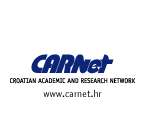

|
||
 |
||
 |
||


| Authors: Krešimir Žnidar, Jan Jilek, Prizma istraživanja, Croatia, Zenel Batagel, CATI, Slovenia | | Full paper | Presentation
| |
Abstract
The topic of this presentation is web site audience’s measurement. In the markets where web marketing and advertising budgets spent on the Net are large enough, methods similar to peoplemeters in case of TV measurements are usually used. In such cases Internet users - panelists - have software applications installed on their computers that are monitoring Internet traffic from their computers. The data are sent to servers located at research organizations in real-time and so also analyzed. Alternative methods can also be used: (1) traditional surveys and (2) technological, mostly server based measurements. Both of them can be (and are widely) criticized. The reasons behind that are mostly low understanding of survey research and too high expectations that measurements are actually not needed since the Internet is highly trackable.
There are also known limitations of these ’traditional’ methods. Survey based methods have limitations because they are based on respondents memory what results that web pages with higher recognition (known brands) get higher scores, while non-branded or new sites get lower scores. On the other side, technical - server based methods have problems of users identifications, what is usually connected with cookie problems, multiple users on the same computer and firewall, proxy problems.
In not so rich markets (small countries and countries with low purchasing power) there is not enough money on the market to run these sophisticated panel surveys. Therefore ’traditional’ methods, generally not well accepted by the Internet industry should be used. There is an additional phenomena present in the region of former Yugoslavia, web sites are mostly run by enthusiasts, mostly people from IT industry that even less familiar with survey research methods, media research methods in general, and therefore very suspicious.
In April 2002 an alternative approach of measuring web site audiences
was used for the first time in Slovenia. It combined technical measurement
using so called ”pixels”, web surveys to get demographical and other
respondents data, and parallel telephone control survey. All three methods
of measurement were used together for the final results: 14-days reach
estimates, demographical profiles of web pages evaluated and overlap
among pages. In November 2002 the second and upgraded wave was carried
out with extended web questionnaire and with more participative web
sites. Also at the end of 2003 this approach was successfully used on
Croatian internet. The final results of last Slovenian and Croatian
are: monthly reach, 14-days reach and weekly reach of web sites with
full demographical profiles and other marketing, life-stile, etc. indicators.
The results are available in software application and it will be briefly
presented on CUC.
Future plans are to conduct alternative measurement of web site audiences
in whole region (ex-Yugoslavia) on a regular basis and to increase number
of measurement periods in each country.